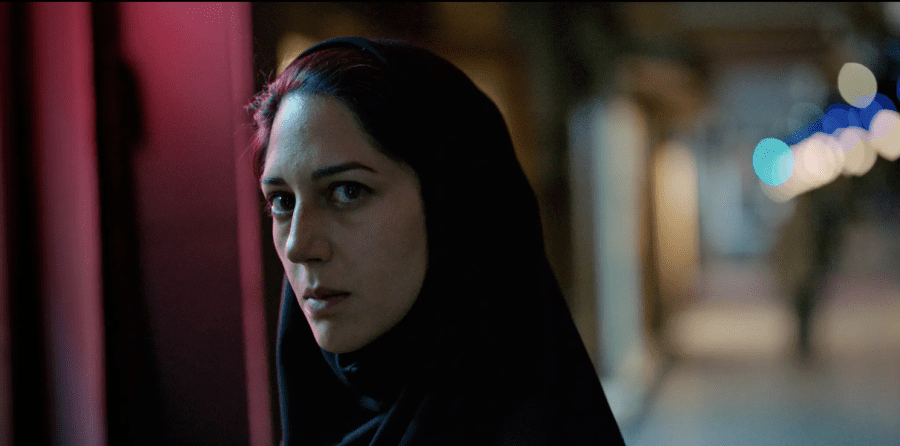‘Holy Spider’ is a striking work of Iranian social commentary
“Holy Spider” opened at the IFC Center on Friday, Oct. 27.
October 31, 2022
Iranian Danish filmmaker Ali Abbasi’s latest film, “Holy Spider,” is the most unrelenting, pragmatic and cynical film of the year. There is no denying the film’s shockingly raw and unfiltered presentation as it follows a journalist investigating the murders of sex workers in the city of Mashhad.
“Holy Spider” begins rather audaciously, taking the viewer through an average night of a sex worker in Mashhad. The sex worker spotlighted at the beginning of the film is introduced as impoverished, living with her young son.
Abbasi successfully makes the viewer understand the character’s motivations, and provokes remarkable discomfort from the audience about her socioeconomic circumstances. Her night ends as she is picked up by the “Spider Killer” who then strangles her to death in his apartment. Abbasi manages to hold the viewer hostage within the first few minutes alone, and the striking opening casts a looming, dark shadow over the rest of the film.
The protagonist, Rahimi — played by the Zar Amir-Ebrahimi, who won best actress at this year’s Cannes Film Festival — is the journalist investigating the “Spider Killer,” who the audience learns early on to be a construction worker named Saeed (Mehdi Bajestani). As Rahimi expands her investigation, the viewer learns more about Saeed’s life, his family, and most notably, his psyche. “Holy Spider” is as much a film about a serial killer investigation as it is a character study of the serial killer. Abbasi isn’t condoning or attempting to empathize with Saeed; rather, he is portraying a serial killer by including the thought process behind his actions.
The film’s cinematography is raw and authentic, with rocking, almost nightmarish handheld camera work that puts the viewer into the perspective of the characters. In fact, the narrative’s viewpoint is what makes “Holy Spider” distinct from any other crime drama.
“Holy Spider” seems to be a riveting social commentary, ambitiously criticizing patriarchy and religious fundamentalism in Iran. The film details the systematic and misogynistic injustice that women experience. It is relentless in its portrayal of such injustice through Saeed — who uses his devotion to Islam as an excuse for heinous actions — and his increasingly unstable mental state. The recent uprisings against the Iranian government following Mahsa Amini’s death only highlight these injustices.
There are levels of tension in “Holy Spider” that are very much akin to that of a horror film. During the moments when the viewers are not offered insight into Saeed’s psyche, they are placed in the shoes of Rahimi and her increasingly thrilling story. Abbasi effectively establishes a bleak, tense atmosphere for the protagonist as she traverses the haunting streets of Mashhad and delves deeper and deeper into her investigation.
“Holy Spider” is more than a social commentary. It is a stressful, unsettling and endlessly disturbing portrait of religious extremism and misogyny at its most horrific.
Contact Yezen Saadah at [email protected].




























































































































































